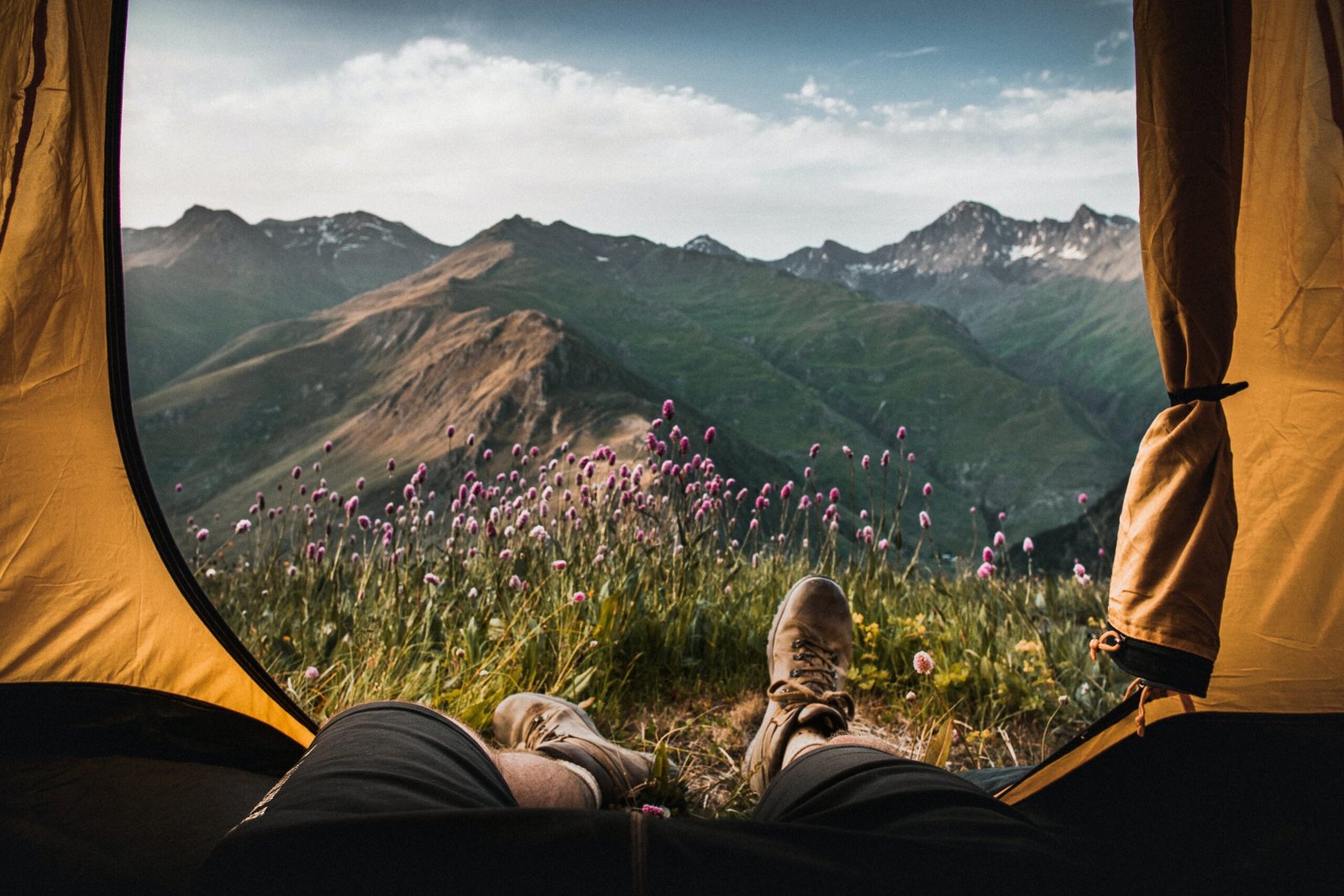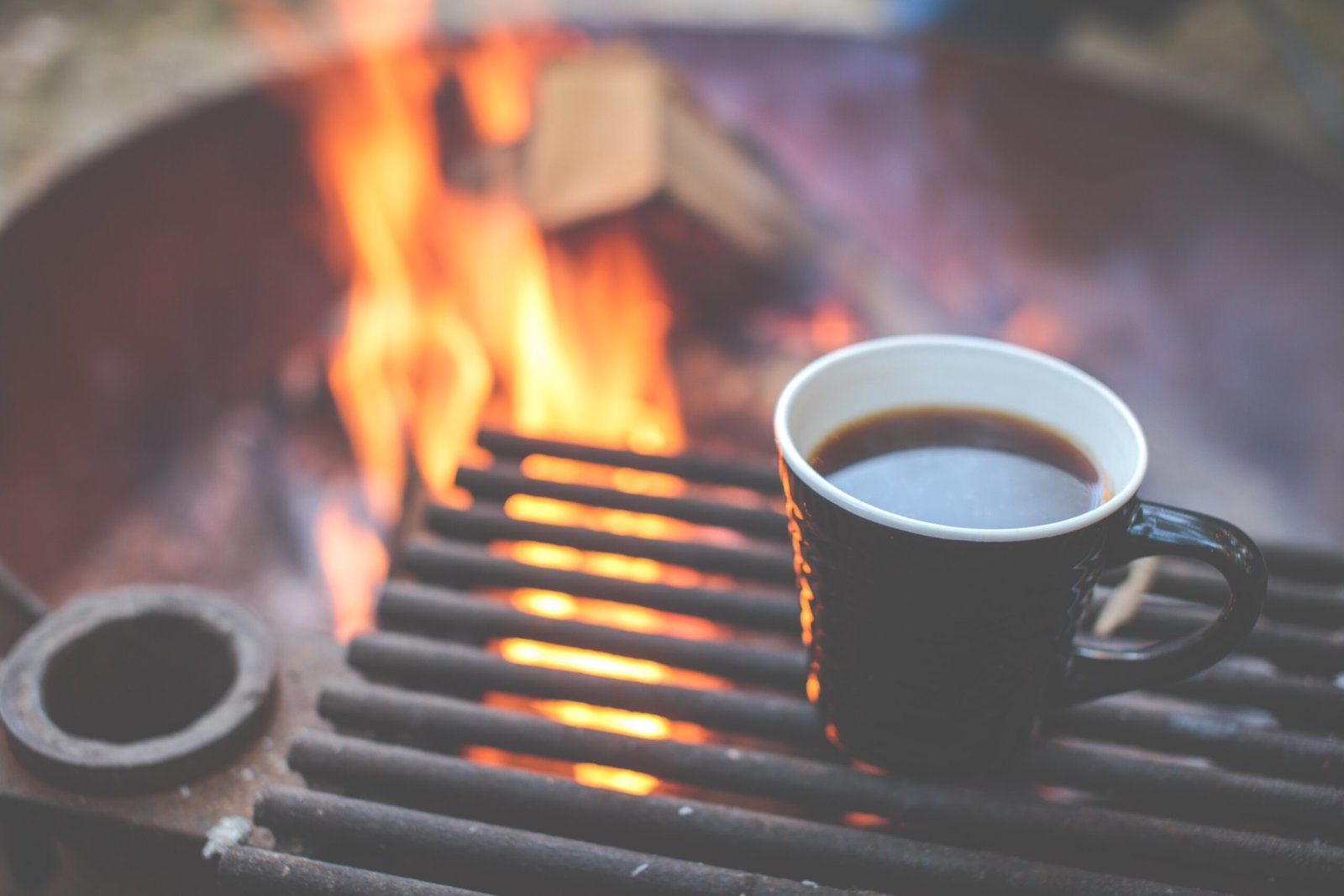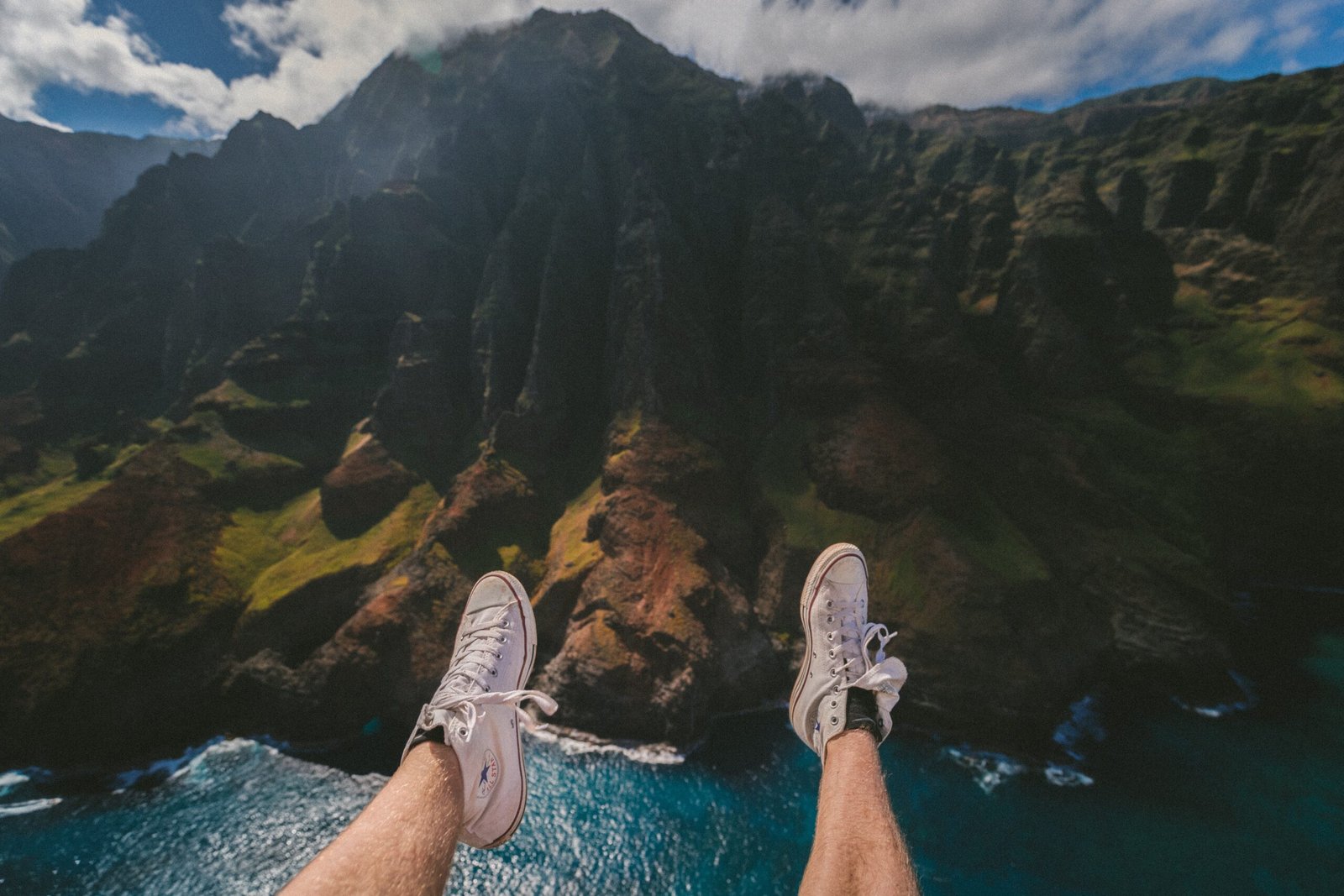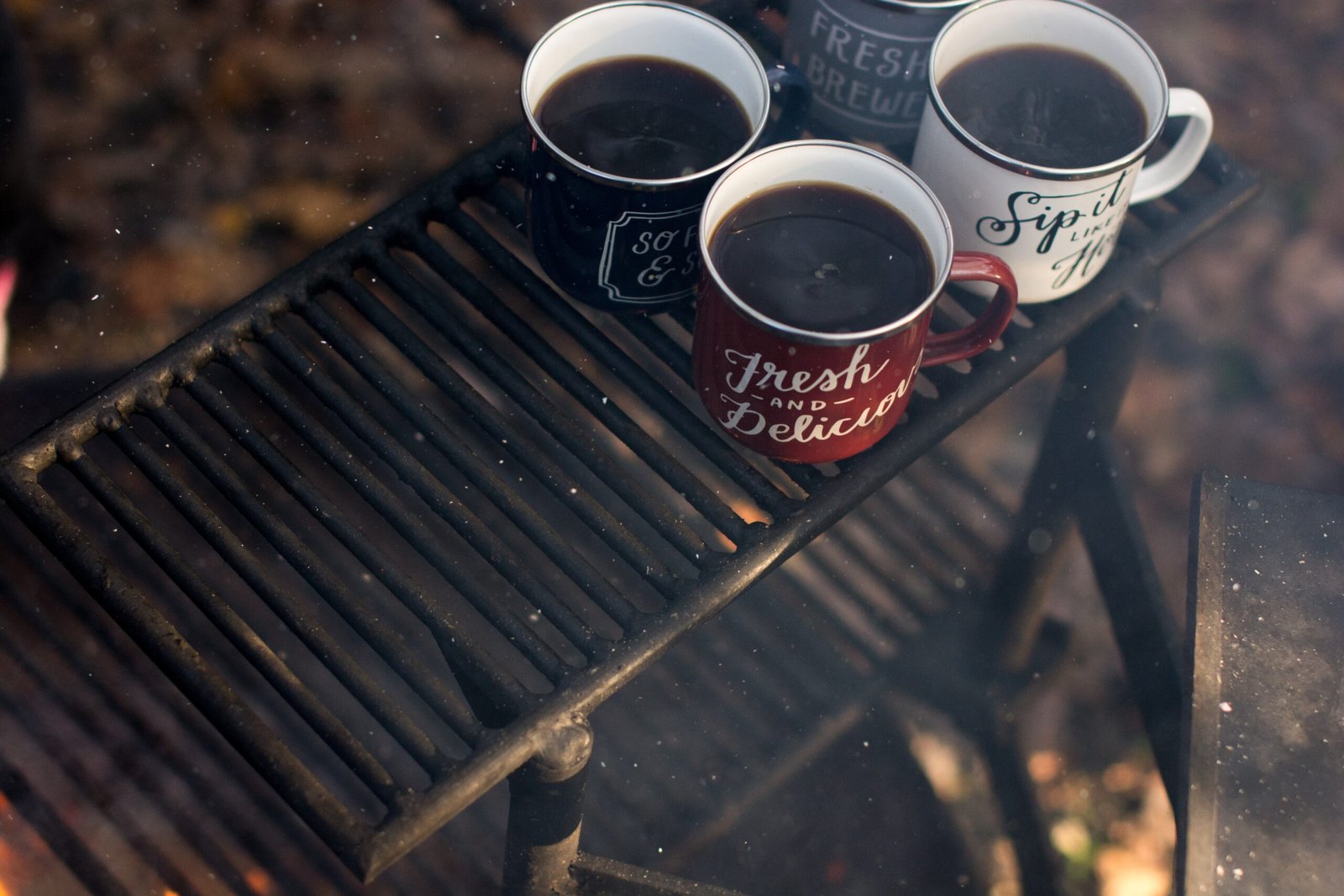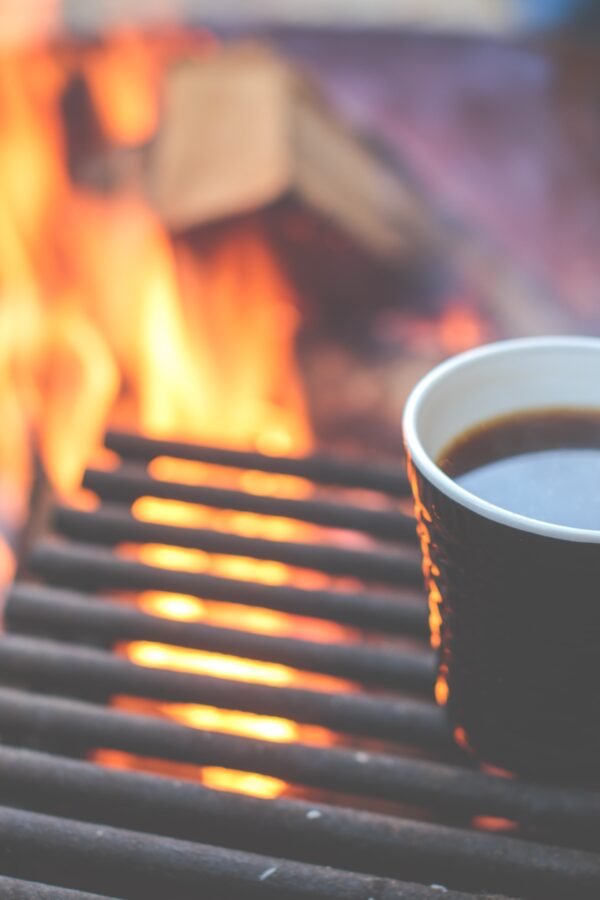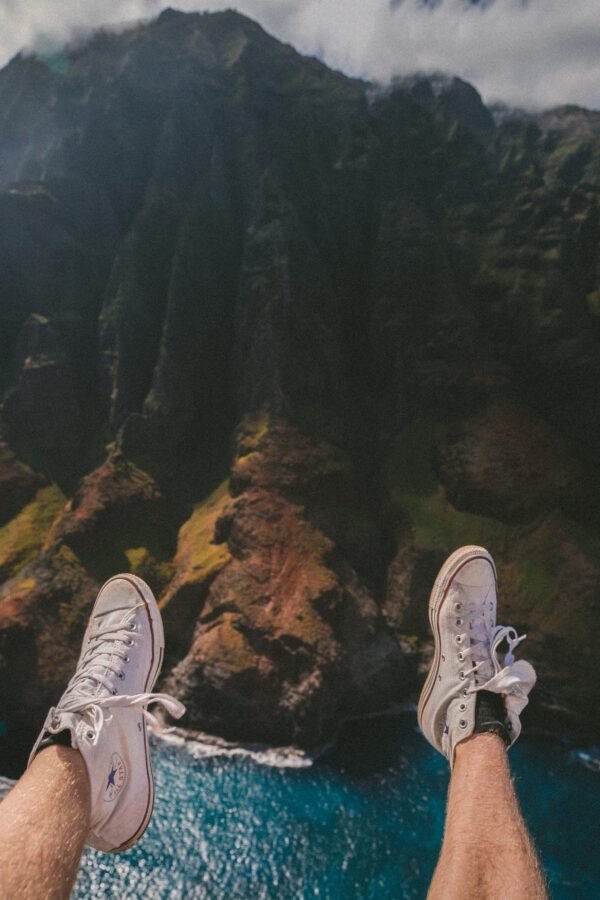Are you ready to embark on an unforgettable camping adventure? Look no further because Tutti Camping is here to guide you on the perfect packing journey. Get ready to discover the magic of camping with our expert tips and tricks on how to pack efficiently and effectively. From essential gear to must-have items, we’ve got you covered. So grab your backpack and let’s delve into the wonderful world of packing for camping!
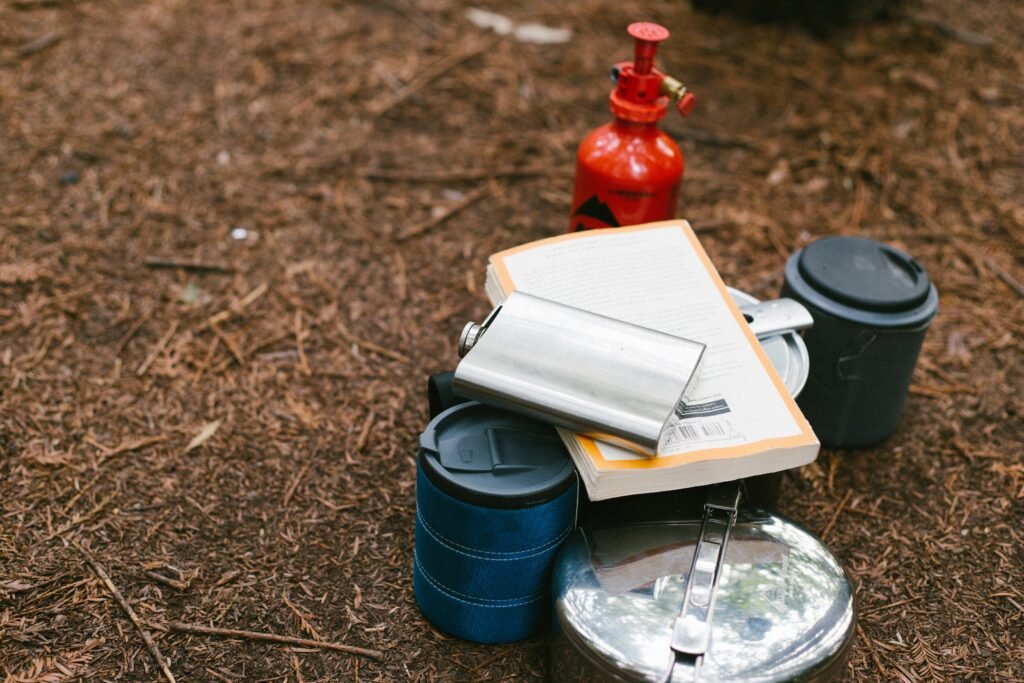
Essential Gear and Equipment
When it comes to camping, having the right gear and equipment is essential for ensuring a comfortable and enjoyable trip. Here are some of the must-haves you should consider packing:
Tents
A reliable and sturdy tent is a must for any camping trip. Choose one that is spacious enough to comfortably accommodate you and your fellow campers. Look for features like waterproofing, ventilation, and easy setup.
Sleeping Bags
A warm and cozy sleeping bag is crucial for a good night’s sleep in the great outdoors. Consider the temperature rating of the sleeping bag to ensure it matches the climate of your camping destination.
Sleeping Pads or Air Mattresses
To add an extra layer of comfort and insulation between you and the ground, pack a sleeping pad or air mattress. These provide cushioning and help regulate your body temperature while you sleep.
Camp Chairs
Don’t forget to bring some comfortable camp chairs to relax in after a long day of outdoor activities. Look for lightweight and foldable options that are easy to transport.
Camp Stove and Fuel
For cooking up delicious meals at your campsite, a camp stove and fuel are essential. Choose a stove that suits your needs and consider the fuel type, such as propane or butane.
Cooking Utensils
Pack a set of cooking utensils, including pots, pans, knives, spatulas, and cooking utensils. These are indispensable when it comes to preparing meals at your campsite.
Cooler and Ice Packs
To keep your perishable food fresh and your drinks cold, bring along a cooler and some ice packs. Opt for a cooler that is durable, well-insulated, and large enough to hold all your supplies.
Flashlights or Lanterns
Ensure you have a reliable source of light during your camping trip by packing flashlights or lanterns. These are essential for navigating your campsite at night and can also be used for outdoor activities like nighttime hikes.
First Aid Kit
Safety should always be a priority when camping, so don’t forget to bring a well-stocked first aid kit. Include items such as bandages, antiseptic ointment, pain relievers, and any necessary prescription medications.
Personal Hygiene Items
Maintaining personal hygiene while camping is important for staying comfortable and feeling refreshed. Pack items such as toothbrushes, toothpaste, soap, toilet paper, and any other personal care products you may need.
With these essential gear and equipment items, you’ll be well-prepared for a successful and enjoyable camping trip.
Clothing and Footwear
Packing the right clothing and footwear is crucial for staying comfortable and protected while camping. Here are some items you should consider including in your camping wardrobe:
Layered Clothing
When camping, it’s important to dress in layers to accommodate for changes in weather and temperature. Pack a combination of base layers, insulating layers, and outer layers so that you can easily adjust your clothing as needed.
Rain Gear
Don’t let unexpected rain spoil your camping trip. Bring along waterproof jackets, pants, and a waterproof hat or cap to keep yourself dry and protected from the elements.
Socks
Invest in high-quality socks, preferably made of moisture-wicking materials, to keep your feet comfortable and blister-free. Pack enough pairs to last throughout your trip and consider bringing extras in case of emergencies.
Hiking Boots or Trail Shoes
Having proper footwear is essential for any outdoor adventure. Invest in a good pair of hiking boots or trail shoes that provide comfort, support, and traction for all types of terrain.
Swimwear
If your camping trip includes swimming, don’t forget to pack swimwear. Whether you plan to take a dip in a nearby lake or relax by a pool, having swimwear on hand will allow you to enjoy these refreshing activities.
Hat or Cap
Protect yourself from the sun’s rays by bringing a hat or cap with a wide brim. This will shield your face, neck, and ears from the sun and help prevent sunburn.
Gloves
If you’ll be camping in colder weather or participating in activities like hiking or rock climbing, pack a pair of gloves to keep your hands warm and protected.
Pajamas
Ensure a good night’s sleep by packing comfortable pajamas or sleepwear. Opt for lightweight and breathable options that will keep you cozy without overheating.
Extra Clothes for Unexpected Weather
Weather conditions can be unpredictable, so it’s a good idea to pack some extra clothes in case of unexpected changes. Include items like an extra sweater, rain jacket, or warm hat to stay prepared.
Laundry Bags
To keep your dirty clothes separate from the clean ones, pack a few laundry bags. These will make it easier to organize your clothing and prevent odors from spreading.
By packing the right clothing and footwear, you’ll be ready for any weather conditions or outdoor activities that come your way during your camping trip.
Food and Water
Properly planning and packing food and water is essential for maintaining energy and nourishment during your camping adventure. Here’s what you need to consider:
Non-Perishable Food
When packing food for camping, opt for non-perishable items that are lightweight and easy to prepare. Some great options include canned goods, dried fruits, nuts, granola bars, and dehydrated meals.
Cooking Oil or Spray
Don’t forget to pack cooking oil or spray to add flavor and prevent food from sticking to your cookware. Opt for small, spill-proof containers that won’t take up much space in your camping kitchen.
Drinking Water
Water is essential for staying hydrated while camping, so make sure to pack an ample supply. Depending on the availability of clean water sources at your campsite, you may need to bring enough water for drinking, cooking, and cleaning.
Water Filtration System
If you’re camping in an area where clean water sources are limited or questionable, consider bringing a water filtration system. These portable devices remove impurities and make water safe to drink.
Cooler for Perishable Food
If you plan on bringing perishable food items, such as meat, dairy, or fresh produce, a cooler is a must. Invest in a high-quality cooler that will keep your food at a safe temperature for an extended period.
Reusable Water Bottles
To minimize waste and stay environmentally friendly, pack reusable water bottles for each camper. This will allow you to refill them as needed and reduce the use of disposable plastic bottles.
Food Containers
Bring along food containers for storing leftovers, pre-prepared meals, or snacks. Look for containers that are durable, leak-proof, and stackable to maximize space in your camping kitchen.
Trash Bags
Maintaining a clean campsite is important, so pack plenty of trash bags for proper waste disposal. Separate your garbage from recyclables and dispose of them properly at designated areas.
Spices and Condiments
Enhance the flavor of your campsite meals by packing a variety of spices and condiments. Bring along small containers or travel-sized packets to minimize space and waste.
Snacks and Easy-to-Prepare Meals
Don’t forget to pack snacks and easy-to-prepare meals for quick and convenient sustenance on the go. Trail mix, energy bars, instant noodles, and oatmeal are great options to have on hand.
By planning and packing your food and water carefully, you’ll have a well-fed and energized camping experience.
Campsite Essentials
To ensure a smooth and organized camping trip, it’s important to pack the following campsite essentials:
Maps and Navigation Tools
Before heading out to your camping destination, gather maps and navigation tools to help you find your way. GPS devices, compasses, and physical maps are all valuable resources.
Campsite Reservation Confirmation
If you’ve made a reservation at a specific campsite, make sure to pack a printed or digital copy of the reservation confirmation. This will serve as proof of your reservation and make checking in easier.
Firewood and Matches
Building a campfire is a quintessential camping experience. Pack firewood or fire logs, along with matches or a lighter, to ensure you can enjoy cozy nights by the fire.
Campsite Guidebook or Brochures
If you’re camping in a park or recreational area, it’s helpful to have a guidebook or brochures about the campsite. These resources provide information about nearby trails, attractions, and amenities.
Campsite Permits
Some campsites require permits for camping, so make sure to pack any necessary permits or licenses. This will prevent any issues with campsite authorities and ensure a smooth camping experience.
Trash Bags
Keep your campsite clean and free of litter by packing extra trash bags. Dispose of your trash properly and minimize your impact on the environment.
Resealable Plastic Bags
Bring along a variety of resealable plastic bags for storing snacks, leftovers, toiletries, or any other small items. These bags are useful for organizing your belongings and preventing spills or leaks.
Rope or Cord
Having rope or cord on hand can be incredibly useful for various campsite tasks such as setting up a clothesline, securing items, or tying down tarps. Choose a strong and durable option.
Duct Tape
Duct tape is a versatile tool that should never be left behind when camping. It can be used for emergency repairs, securing equipment, or creating makeshift solutions in a pinch.
Campsite Entertainment (Books, Games, etc.)
To keep yourself entertained during downtime at the campsite, pack some entertainment options like books, games, or playing cards. These activities can help relax and bond with your fellow campers.
By packing these campsite essentials, you’ll be well-prepared for a comfortable and enjoyable camping experience.
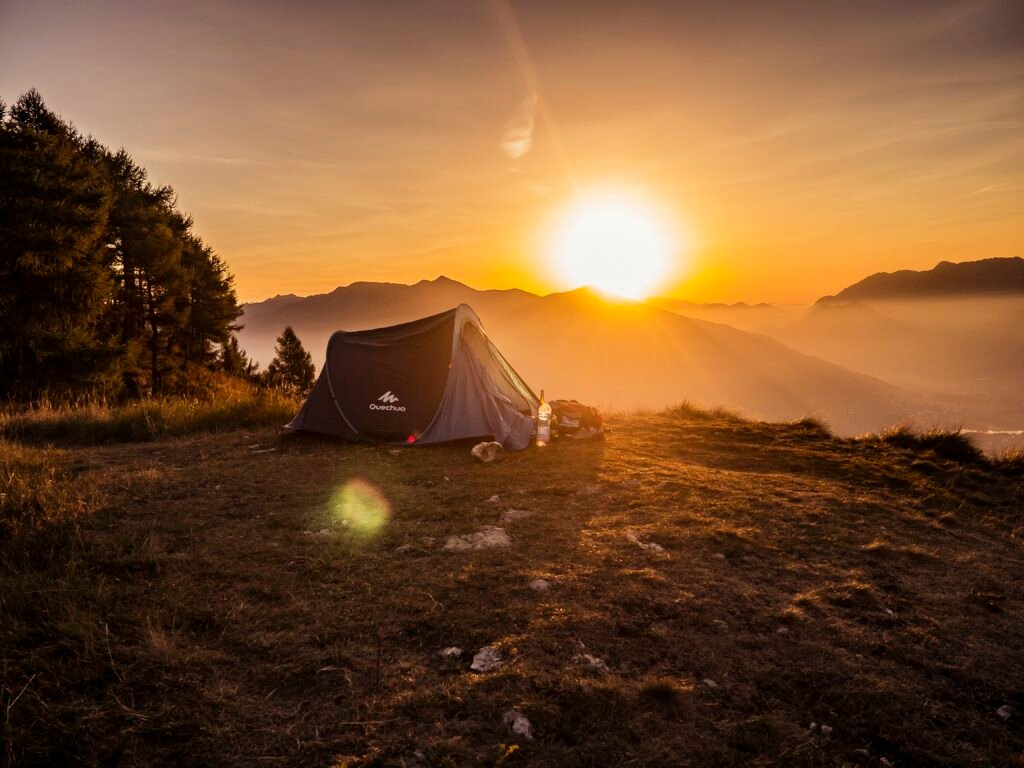
Personal Items
Don’t forget to pack the following personal items to ensure a comfortable and hassle-free camping trip:
Identification and Travel Documents
Keep your identification and travel documents safe and accessible by packing them in a secure and waterproof container. This includes items like your driver’s license, passport, camping permits, and reservation confirmations.
Cash or Credit Cards
While camping, you may come across situations where cash or credit cards are needed. Make sure to bring enough money for emergency expenses or any additional purchases you may want to make.
Cellphone and Charger
Although you may want to disconnect from technology during your camping trip, it’s still important to have your cellphone with you for emergencies. Don’t forget to pack a charger as well to keep your phone powered.
Camera and Batteries
Capture the beautiful moments and memories of your camping trip by packing a camera. Make sure to bring extra batteries or a power bank to keep your camera charged.
Biodegradable Soap
When it comes to personal hygiene and cleaning dishes, opt for biodegradable soap. This type of soap is eco-friendly and won’t harm the environment when you use it at your campsite.
Toothbrush and Toothpaste
Maintain oral hygiene by packing a toothbrush and toothpaste. These small items are essential for keeping your teeth clean and your breath fresh while camping.
Sunscreen and Bug Spray
Protect your skin from the sun’s harmful rays by packing sunscreen with a high SPF. Additionally, bring bug spray to ward off mosquitoes and other insects that may be present at your campsite.
Medications and Prescriptions
If you take any medications or have specific medical needs, make sure to pack an ample supply for the duration of your trip. Keep them in a labeled container and store them in a cool and dry place.
Sunglasses and Sunhat
Shield your eyes and face from the sun by packing sunglasses and a sunhat. These items will provide protection against UV rays during outdoor activities.
Personal Entertainment (Music, Books, etc.)
Bring along items that will keep you entertained during quiet moments at the campsite. Whether it’s a book, music player, or any other personal entertainment, having these items on hand can provide relaxation and enjoyment.
By packing these personal items, you’ll be prepared to tackle any camping adventure with comfort and convenience.
Campfire Essentials
A campfire adds warmth, ambiance, and a gathering place during your camping trip. Make sure to pack the following campfire essentials:
Firestarter
To make starting a campfire easier, bring along firestarters such as firelighters, waterproof matches, or a fire starter kit. These items can be a lifesaver if you’re in a damp or windy environment.
Firewood or Fire Logs
Ensure you have enough firewood or fire logs to keep your campfire burning throughout your trip. Check with your campsite regulations to determine if you can gather firewood locally or if you need to bring your own.
Matches or Lighter
Pack matches or a lighter to easily ignite your campfire. Keep them in a waterproof container to prevent moisture damage.
Fire Extinguisher
Safety should always be a priority when dealing with fire. Bring a fire extinguisher to your campsite to ensure you can quickly and effectively address any emergencies.
Campfire Cooking Tools
If you plan on cooking meals over the campfire, pack essential cooking tools such as long-handled forks, skewers, and grilling utensils. These tools will make cooking over an open flame safer and more convenient.
Marshmallow Roasting Sticks
No camping trip is complete without roasting marshmallows over the campfire. Pack long roasting sticks to perfectly toast your marshmallows and enjoy delicious s’mores.
Grill or Campfire Grate
If your campsite doesn’t provide a grill or campfire grate, consider bringing your own. A grill or grate makes cooking over a fire easier and prevents food from falling into the flames.
Fireproof Gloves
Protect your hands and forearms from burns by packing fireproof gloves. These gloves will allow you to handle hot cookware, adjust logs in the fire, and perform other campfire tasks safely.
Pots, Pans, and Utensils
If you plan on cooking meals over the campfire, bring along pots, pans, and utensils made specifically for outdoor cooking. Ensure that they are fire-safe and easy to clean.
By packing these campfire essentials, you’ll be ready to enjoy the warmth, comfort, and delicious meals that a campfire brings.
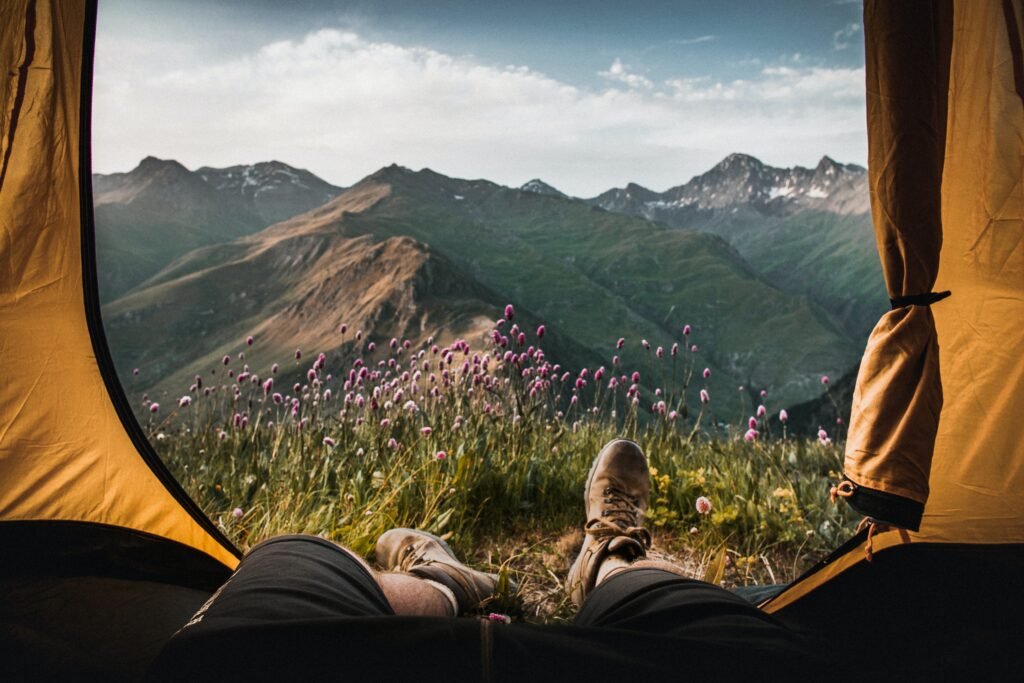
Safety and Security
Prioritizing safety and security is crucial when camping. Make sure to pack the following items to ensure your well-being:
Emergency Contacts
Before embarking on your camping trip, make a list of emergency contacts and keep it easily accessible. Include numbers for local emergency services, your campground office, and family or friends who can assist in emergencies.
Whistle or Signal Mirror
In case of emergencies or to get someone’s attention, pack a whistle or signal mirror. These items can help you alert others to your location or signal for help if needed.
Emergency Shelter
In case of unforeseen circumstances, it’s always wise to have an emergency shelter. This could be a lightweight tent, tarp, or bivy sack that can be easily set up to protect you from the elements.
Pocket Knife or Multi-Tool
A pocket knife or multi-tool is a versatile and handy tool to have while camping. It can be used for various tasks such as cutting branches, opening cans, and repairing gear.
Safety Clothing (Reflective Vest, etc.)
If you plan on participating in activities that require visibility, pack safety clothing such as a reflective vest or brightly colored clothing. This will make you more visible to others and minimize the risk of accidents.
Extra Batteries
To ensure your electronic devices, flashlights, and other battery-powered equipment stay functional, pack extra batteries. This will prevent any inconvenience or interruption due to dead batteries.
Basic Tool Kit
Having a basic tool kit on hand can be helpful for minor repairs or adjustments. Include items like a screwdriver, pliers, adjustable wrench, and any other tools you may need for maintenance.
Locator Beacon or GPS
If you’ll be venturing into remote or unfamiliar areas, consider packing a locator beacon or a GPS device. These devices can help you accurately determine your location and assist rescuers if needed.
Portable Power Bank or Solar Charger
Keep your electronic devices charged even in the great outdoors by packing a portable power bank or solar charger. These devices allow you to charge your devices on the go, ensuring you stay connected and accessible.
Emergency Cash or Phone Card
It’s always a good idea to have some emergency cash or a phone card on hand. In situations where you might not be able to use your credit or debit cards, having an alternative payment method can be invaluable.
By prioritizing safety and security and packing the necessary items, you’ll be prepared to handle any unexpected situations that may arise during your camping trip.
Cleaning and Sanitation
Maintaining cleanliness and proper sanitation is important when camping. Pack the following items to ensure a hygienic camping experience:
Biodegradable Soap
Choose biodegradable soap for personal hygiene and dishwashing to minimize your impact on the environment. This type of soap breaks down naturally without harming ecosystems.
Toilet Paper
Bring along enough toilet paper to last your camping trip. Consider packing it in a waterproof container or resealable plastic bag to keep it dry and protected.
Hand Sanitizer
When soap and water aren’t readily available, hand sanitizer is a convenient alternative. Choose a travel-sized bottle to sanitize your hands effectively during your camping adventure.
Trash Bags
To maintain a clean and organized campsite, pack plenty of trash bags. Use them to dispose of garbage and keep your camping area tidy.
Towel and Washcloth
A towel and washcloth are essential for personal hygiene and cleaning up spills or messes. Opt for quick-drying and lightweight options for easy packing and drying.
Portable Shower or Water Bag
If your campsite doesn’t provide shower facilities, consider packing a portable shower or water bag. These devices allow you to have a refreshing shower even when running water isn’t available.
Shovel or Trowel
To properly dispose of human waste, bring a shovel or trowel to dig proper cat holes or use designated pit toilets. Follow Leave No Trace principles and dispose of waste in a responsible and sanitary manner.
Bucket for Washing Dishes
To effectively clean your cookware and dishes, pack a collapsible bucket specifically for washing. This will make dishwashing more convenient and prevent food particles from contaminating your campsite.
Disinfectant Wipes
Disinfectant wipes can be useful for cleaning surfaces, equipment, and utensils. They are convenient, hygienic, and allow you to maintain cleanliness without the need for water.
Campsite Rules and Regulations
Be aware of and respect the rules and regulations of your campsite. Research and familiarize yourself with any specific guidelines to ensure you follow proper etiquette and leave the campsite as you found it.
By prioritizing cleaning and sanitation and packing the necessary items, you’ll ensure a hygienic and pleasant camping experience for yourself and fellow campers.
Miscellaneous
There are a few more miscellaneous items to consider packing that can enhance your camping adventure. These include:
Multi-Purpose Tarp
A multi-purpose tarp can be an invaluable piece of equipment while camping. Use it as a ground cover, rain shelter, or even to create shade during hot weather.
Extra Tent Stakes
Pack a few extra tent stakes in case any get lost or damaged. They are lightweight and take up minimal space, but having extras can save you from potential tent setup challenges.
Repair Kit (Tent, Sleeping Bag, etc.)
Accidents happen, and gear can sometimes get damaged while camping. Pack a repair kit with items like patch kits, zipper pull replacements, and seam tape to tackle any necessary repairs on the go.
Extra Batteries
In addition to the extra batteries mentioned earlier, bring extras for any other electronic devices or gadgets you may have. This way, you won’t be left without power when you need it most.
Sealable Plastic Bags
Having a supply of sealable plastic bags in different sizes is incredibly useful during camping trips. Use them to store leftover food, keep items dry, or organize small belongings.
Campsite Specific Items (Bear Canister, etc.)
Some campsites may have specific requirements or recommendations for camping in their area. Make sure to check their guidelines and pack any necessary items, such as bear canisters or bear-proof containers.
Campsite Lighting
Bring along additional lighting options for your campsite. This can include lanterns, string lights, or headlamps to provide ample illumination during nighttime activities.
Portable Camping Table
Having a portable camping table can make meal preparation, eating, and other activities more convenient. Look for lightweight and foldable options that are easy to transport.
Laundry Detergent
If you plan on doing laundry while camping, pack a small amount of laundry detergent. Opt for travel-sized or eco-friendly options to minimize your impact on the environment.
Outdoor Recreation Equipment (Bikes, Kayaks, etc.)
If you plan on engaging in outdoor activities like biking, kayaking, or fishing, pack the necessary equipment. This can include bikes, helmets, fishing gear, kayaks, paddles, and life jackets.
By addressing these miscellaneous items, you can enhance your camping experience and be prepared for a variety of situations and activities.
Tips and Tricks
Now that you have an extensive packing list for your camping trip, here are some helpful tips and tricks to keep in mind:
Make a Checklist
Creating a comprehensive packing checklist can help ensure that you don’t forget any essentials. Check off items as you pack them to ensure everything makes it into your camping gear.
Pack Efficiently and Organize
When packing, utilize storage solutions like packing cubes or compression bags to maximize space and keep your gear organized. This makes unpacking and locating items much easier during your trip.
Use Compression Bags or Sacks
To save space in your backpack or luggage, use compression bags or sacks to condense bulky items like sleeping bags or clothing. These bags allow you to compress the air out, making the items more compact.
Prioritize Essential Items
Make a separate list of essential items that must be packed, and prioritize them accordingly. This ensures that crucial items like food, water, and safety equipment are not overlooked.
Minimize Pack Weight
Consider the weight of your gear and try to minimize it as much as possible. Opt for lightweight options when choosing gear and pack only what is necessary for your camping adventure.
Consider Weather Conditions
Stay informed about the weather conditions at your camping destination and pack accordingly. Bring appropriate clothing, gear, and equipment to ensure your comfort and safety.
Label and Secure Valuables
Label your gear and personal items with your name or contact information to prevent loss. Additionally, secure valuable items in a lockable container or keep them on your person to prevent theft.
Research Campsite Facilities
Before your trip, research the facilities available at your chosen campsite. This will help you pack accordingly and ensure you have everything you need for a comfortable stay.
Consult Camping Experts
If you’re new to camping or unsure about certain aspects, don’t hesitate to seek advice from camping experts. They can provide valuable tips, recommendations, and guidance based on their experience.
Practice Leave No Trace Principles
When camping, it’s important to minimize your impact on the environment. Follow Leave No Trace principles which include properly disposing of waste, respecting wildlife, and leaving your campsite as you found it.
By following these tips and tricks, you’ll be well-prepared and equipped to make the most out of your camping adventure and enjoy all the wonders nature has to offer.
In conclusion, packing for a camping trip requires careful consideration and planning. By using this comprehensive checklist, you can ensure that you don’t overlook any important items and have everything you need for a comfortable and enjoyable camping experience. From essential gear and equipment to personal items and safety provisions, each item plays a crucial role in ensuring your well-being and convenience while camping. Remember to prioritize safety, respect the environment, and make informed decisions when selecting your camping gear. With the right preparation, you can embark on a memorable camping trip filled with adventure, relaxation, and the beauty of the great outdoors.

